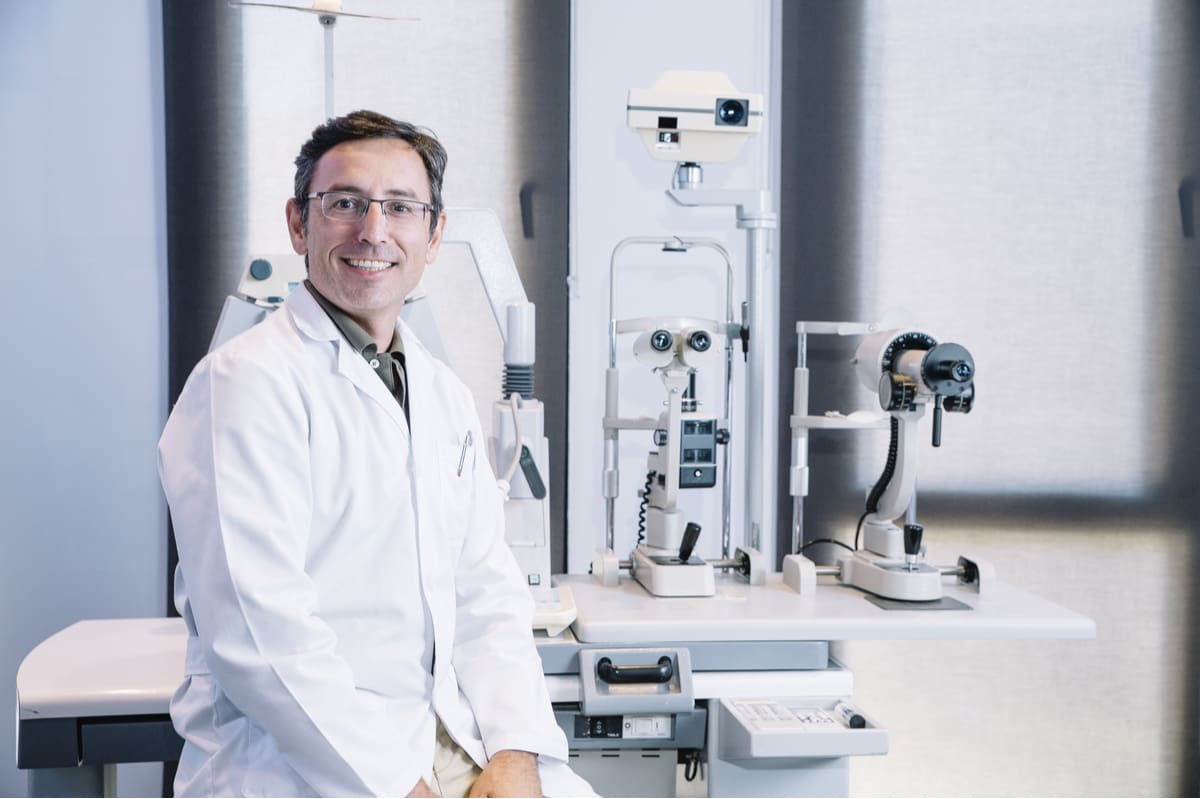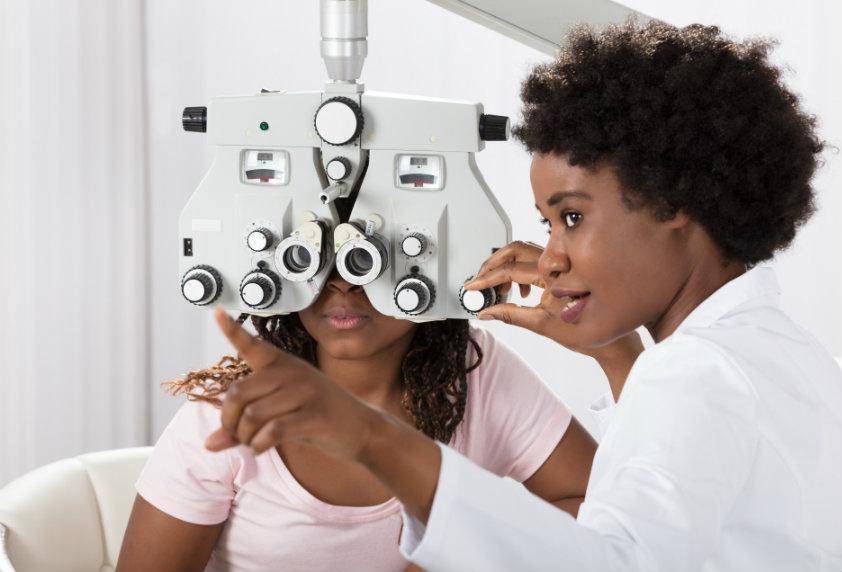Premier Optometrist Montgomery for Clearer Vision
Wiki Article
The Significance of Routine Eye Tests: Insights From a Knowledgeable Ophthalmologist
Routine eye tests serve as an important element of medical care that extends past plain vision correction. A knowledgeable eye medical professional can give insights into how these examinations not just spot usual eye conditions however also reveal underlying wellness problems that might or else go undetected.Benefits of Normal Eye Tests
Although many people might forget the relevance of normal eye exams, these evaluations play an essential function in keeping total health and health. Normal eye examinations offer not just to analyze vision however also to find very early indicators of systemic health issues, including diabetes mellitus and hypertension. By identifying these problems at their beginning, individuals can get prompt interventions, dramatically boosting lasting end results.Additionally, eye examinations can aid in keeping an eye on existing health and wellness problems, guaranteeing that any kind of modifications in vision or eye health are quickly resolved (optometrist). The evaluations enable personalized suggestions pertaining to eyeglasses, way of living changes, and protective actions against potential eye stress or damages
Beyond physical health and wellness, the advantages of routine eye exams prolong to improving lifestyle. Enhanced vision promotes better performance in daily activities, from reviewing to driving, thus adding to better independence and safety. Inevitably, prioritizing eye examinations cultivates a positive strategy to health and wellness management, empowering individuals to take cost of their health. Normal check-ups are a necessary part of a comprehensive health care approach, guaranteeing that both vision and total health are protected throughout life.
Common Eye Issues Detected
Regular eye tests contribute in spotting a selection of typical eye problems that can significantly impact vision and total health and wellness. Amongst the most widespread conditions determined during these evaluations are refractive mistakes, consisting of nearsightedness (nearsightedness), hyperopia (farsightedness), and astigmatism. These conditions usually materialize as obscured vision and can be quickly remedied with prescription glasses or call lenses.
Furthermore, cataracts, which cause clouding of the lens, are frequently identified in older grownups. This condition can bring about reduced vision and requires surgical intervention for resolution. One more typical issue is glaucoma, a team of eye conditions that harm the optic nerve, frequently linked to enhanced intraocular stress. Early discovery is important as it can avoid irreversible vision loss.
Age-related macular degeneration (AMD) is another considerable problem that influences central vision, especially in individuals over 50. Ultimately, diabetic person retinopathy, a difficulty of diabetes, can bring about serious vision disability if not kept track of consistently. Through detailed eye examinations, these conditions can be recognized early, enabling prompt monitoring and therapy to maintain vision and boost quality of life.
Relevance of Early Detection
Early discovery of eye conditions plays an essential duty in maintaining vision and protecting against substantial wellness problems. Many eye diseases, such as glaucoma, diabetic retinopathy, and age-related macular deterioration, can advance silently without obvious signs and symptoms in their onset. By the time signs and symptoms show up, permanent damages might have happened, you could look here bring about irreversible vision loss.
Routine eye examinations promote very early medical diagnosis, enabling prompt treatment and therapy. As an example, dealing with elevated intraocular pressure can protect against the start of glaucoma, while taking care of blood sugar level degrees can significantly reduce the risk of diabetic person retinopathy. Additionally, problems like cataracts can be successfully handled with surgical intervention when recognized early.

Just How Frequently Should You See?
Identifying the regularity of eye tests is crucial for maintaining ideal eye health and vision. The basic suggestion for grownups is to have a thorough eye test each to two years, relying on individual risk variables and age. For individuals aged 18 to 60, an examination every 2 years is generally adequate if no vision problems are existing. Nonetheless, those over 60 need to take into consideration annual tests, as the risk of age-related conditions boosts dramatically.Individuals with certain risk elements, such as a household history of eye disease, diabetes, or existing vision problems, may require more constant evaluations. Kids need to have their initial eye exam at 6 months of age, followed by added tests at age three and before getting in school. Regular check-ups during youth are crucial as vision can change quickly during developing years.
Eventually, the frequency of check outs need to be tailored per person's conditions, consisting of way of life, job-related threats, and any kind of pre-existing eye problems. Consulting with an eye treatment specialist can give customized recommendations, making certain that your eye important source health is routinely monitored and preserved.
Tips for Your Eye Test
Preparing for your eye test can improve the performance of the check out and guarantee an extensive assessment of your eye health and wellness. To optimize your time with the eye doctor, it is important to gather pertinent information prior to your visit. Start by assembling a checklist of any type of drugs you are presently taking, consisting of non-prescription drugs and supplements, as these can influence eye wellness.Furthermore, document any kind of signs you have actually experienced, such as blurred vision, discomfort, or headaches. This information will aid your ophthalmologist in diagnosing prospective problems. If you put on glasses or contact lenses, bring them along, also if you do not wear them frequently. This will help the doctor assess any modifications in your vision.
It is also beneficial to have a family history of eye conditions available, as hereditary elements can contribute to your eye health and wellness. Finally, consider scheduling your test temporarily when you are less hurried, permitting you to ask inquiries and review your worries extensively. By preparing properly, you guarantee that your eye test is effective which your ophthalmologist has all the essential details to offer the most effective care feasible.

Verdict
Routine eye exams play a critical function in keeping both vision and total health and wellness. They facilitate the very early discovery of different eye problems and systemic problems, enabling prompt treatment. The recommendations for frequency highlight the significance of proactive care. Applying simple primary pointers can enhance the exam experience. Inevitably, prioritizing thorough eye assessments contributes significantly to the conservation of vision and the enhancement of quality of life, underlining the necessity of regular eye care in preventive healthcare approaches.Routine eye tests are critical in identifying a range of typical eye conditions that can considerably influence pop over to this site vision and overall health.Determining the frequency of eye tests is crucial for preserving optimum eye health and wellness and vision.Preparing for your eye test can improve the efficiency of the visit and make sure a comprehensive assessment of your eye wellness (optometrist). By preparing sufficiently, you ensure that your eye exam is efficient and that your eye medical professional has all the necessary information to supply the best care possible
Inevitably, prioritizing comprehensive eye analyses adds significantly to the preservation of vision and the renovation of high quality of life, highlighting the necessity of routine eye treatment in precautionary medical care methods.
Report this wiki page